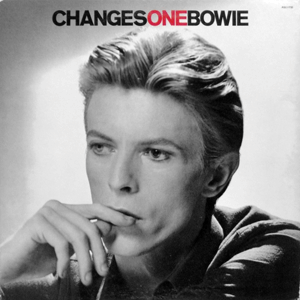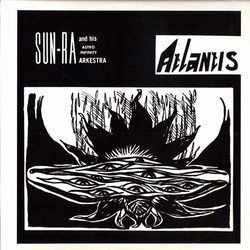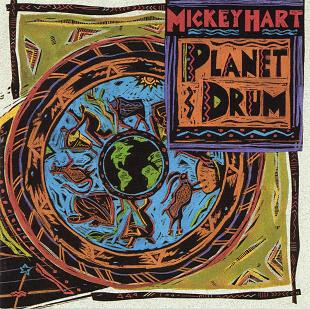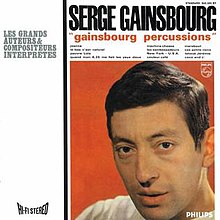
Serge Gainsbourg was a French singer-songwriter, actor, composer, and director. Regarded as one of the most important figures in French pop, he was renowned for often provocative releases which caused uproar in France, dividing public opinion. His artistic output ranged from his early work in jazz, chanson, and yé-yé to later efforts in rock, zouk, funk, reggae, and electronica. Gainsbourg's varied musical style and individuality make him difficult to categorise, although his legacy has been firmly established and he is often regarded as one of the world's most influential popular musicians.

Repeat – The Best of Jethro Tull – Vol II is a 1977 greatest hits album from Jethro Tull, featuring one track which, up to the time of this album's release, had not been issued. The album's first volume was M.U. – The Best of Jethro Tull.

Michael Babatunde Olatunji was a Nigerian drummer, educator, social activist, and recording artist.

James Hawthorne

Hot Rats is the second solo album by Frank Zappa, released in October 1969. It was Zappa's first recording project after the dissolution of the original version of the Mothers of Invention. Five of the six songs are instrumental, while "Willie the Pimp" features vocals by Captain Beefheart. In his original sleeve notes, Zappa described the album as "a movie for your ears".

Changesonebowie is a compilation album by English musician David Bowie, issued through RCA Records in 1976. It collected songs from the 1969–1976 period, including the first LP appearance of "John, I'm Only Dancing". A "sax version" of this song, cut during the Aladdin Sane sessions in 1973, appeared on the first 1000 copies of the UK pressing. Later pressings of Changesonebowie featured the original version of the single that had been recorded and released in 1972. All US pressings of the LP contain this original version as well.

Histoire de Melody Nelson is a 1971 concept album by French singer and songwriter Serge Gainsbourg. Produced by Jean-Claude Desmarty, the album was released on March 24, 1971 through Philips Records. Its narrative follows an illicit romance which develops between the middle-aged narrator and fourteen-year-old girl Melody Nelson, portrayed on the album and its cover art by Gainsbourg's then-partner Jane Birkin.

We Insist! is a jazz album which was released through Candid Records in December 1960. It contains a suite which composer and drummer Max Roach and lyricist Oscar Brown had begun to develop in 1959 with a view to its performance in 1963 on the centennial of the Emancipation Proclamation. The cover references the sit-in movement of the Civil Rights Movement. The Penguin Guide to Jazz awarded the album one of its rare crown accolades, in addition to featuring it as part of its Core Collection.

Du chant à la une !... is the debut studio album by French musician Serge Gainsbourg, released in 1958. This was the debut album for Gainsbourg, released on a 10" vinyl. The album did not do well with critics at the time of its release. However, the album did win the grand prize from the L'Academie Charles Cross in 1959.
"Jin-go-lo-ba" is a song by Nigerian percussionist Babatunde Olatunji, featured on his first album Drums of Passion (1959). In Yoruba it means, "Do not worry."

Love on the Beat is the fifteenth studio album by French singer and songwriter Serge Gainsbourg. On this album, Gainsbourg used American musicians to achieve a funk-heavy rock sound. The album was controversial due to its very sexual lyrical content, with homosexuality and prostitution as the subject matters on many of the tracks. Perhaps the most controversial was "Lemon Incest", which was set to Frédéric Chopin's Étude No. 3 and sung as a duet with his then-13-year-old daughter Charlotte Gainsbourg.

Atlantis is an album by American jazz musician Sun Ra and his Astro-Infinity Arkestra, released in 1969 by El Saturn Records.

Un Peu de l'Âme des Bandits is the second album by Belgian avant-rock band Aksak Maboul. It was recorded at Sunrise Studio in Kirchberg, Switzerland in February and August 1979, and released on LP in January 1980 on founding member Marc Hollander's Belgian independent record label, Crammed Discs. At the time the band had changed the spelling of their name to "Aqsak Maboul", and this is reflected on the album's record sleeve. When the album was re-issued on CD in 1995 the spelling of their name reverted to "Aksak Maboul".

Planet Drum is a world music album by Mickey Hart, a musician and musicologist who was a member of the rock band the Grateful Dead.

Drums of Passion is an album produced by Babatunde Olatunji, a percussionist from Nigeria, in 1960. It was the first recording to popularize African music in the West, becoming immensely successful and selling over five million copies. In 2002, it was released as a single layer stereo and 5.1 SACD by Columbia Records. In 2004 the album was added to the National Recording Registry.

Taj is an album by American blues artist Taj Mahal. The cover photograph was by Robert Mapplethorpe.

Aux Armes et cætera is the thirteenth studio album by Serge Gainsbourg, released in the early spring of 1979. It was recorded in Kingston, Jamaica, with some of the island's best reggae musicians at the time as well as members of the I Threes, Bob Marley's backup chorus which includes Rita Marley. Further expanded by new mixes, dubs and Jamaican versions released in 2003 and 2015, the album is considered by many as being one of his masterpieces. The French edition of Rolling Stone magazine named this album the 50th greatest French rock album. The recording marked the first time a white singer had recorded a full reggae-influenced album in Jamaica, following previous single-song recordings from Paul Simon and Peter Tosh and Mick Jagger. By 1991, it sold 650,000 copies in France.

N° 2 is the second studio album by French musician Serge Gainsbourg, released in 1959. It features Gainsbourg backed by the Alain Goraguer Orchestra. The album was not well received at the time of its release.

You're Under Arrest is the sixteenth and final studio album by French singer-songwriter Serge Gainsbourg. The album was released in 1987 through Philips Records. It was produced by Philippe Lerichomme and the American guitarist Billy Rush, who collaborated with Gainsbourg on his previous album, Love on the Beat (1984).

Amour Anarchie is a double album by Léo Ferré, released in 1970 by Barclay Records. With this album, heavily influenced by sexual revolution and considered by critics as one of his finest, containing a whole string of his classics, the singer-songwriter begins to blend singing with dynamic spoken word. In 2010, the French edition of Rolling Stone magazine named this album the 24th greatest French rock album.



















